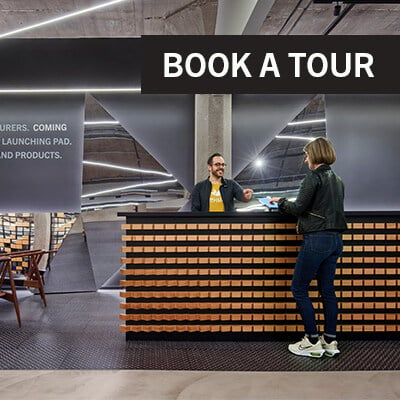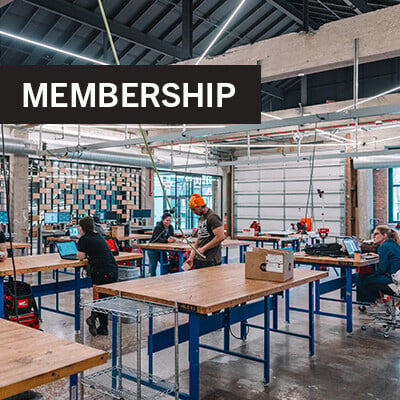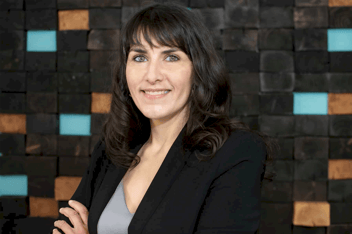The mHUB MedTech Accelerator, which officially opened applications for its third cohort with the support of industry partners Baxter International Inc., Endeavor Health, and GE HealthCare, will be led by industry veteran Monica Vajani. Monica has 18+ years of medical device, corporate innovation, and startup advocacy experience. She shares below some key insights on the evolving landscape of innovation across the medical field.
What inspires you about the evolving MedTech Industry landscape?
What I find most inspiring is that the actual creators, the innovators, are a MUCH more diverse group than what existed 20 years ago. We have seen more physicians come to the table with innovations based on their first-hand experience as well as biomedical and mechanical engineers who want to commercialize inventions coming from a lab setting. Of course, I also must mention that while connected implantables (for example, a pacemaker) have existed for a long time, they are finally getting the spotlight given advancements in artificial intelligence and machine learning (AI/ML). It is awesome to see how industry leaders are working alongside clinicians to focus on using data collected from implants to not only treat the patients in the moment, but use it to predict long term outcomes, and hopefully improve their overall quality of life.
What are the key industry verticals primed for innovation in MedTech?
- Non-invasive therapies/diagnostics. Procedures that require surgical intervention generally require opening up the chest wall or movement of organs to obtain access to the target site. Medical devices that are minimally invasive have and will continue to revolutionize these procedures by reducing procedure times, hospital stays, and improving the overall patient recovery time and experience. Examples include transvenous aortic valve replacement (TAVR), acute hemorrhagic treatment, and ultrasound therapy. Endoshunt, a member of mHUB’s second Medtech Accelerator cohort, is tackling this vertical with their non-invasive solution for trauma surgeons, reducing blood loss and improving patient outcomes.
- Connected therapeutics. This is where digital health coupled with medical treatments can significantly improve patient outcomes. An easy example would be a continuous glucose monitor that both distributes insulin when appropriate and measures glucose levels throughout the day – a much better solution for patients diagnosed with type II diabetes. InVivo Bionics is another example, where an implanted sensor transmits information via the cloud to help patients manage & treat urinary dysfunction.
- Precision medicine. This refers to healthcare professionals and the industry focusing on how to treat specific patients given their individual needs vs a disease state, by evaluating health, behavioral, and social factors that impact their condition. Over the past decade we’ve learned how socioeconomic factors play a significant role in how a patient manages their health, as well as the overall health fluctuations people deal with when managing chronic conditions.
What are some of the medtech trends happening now or will be more apparent in the very near future?
While companies continue to bring innovative technology to the market, health systems continue to have tighter margins and healthcare reimbursement has trended downward. With these factors, medtech trends are generally focused on clinical evidence that supports shorter hospital stays, can sometimes be implemented in a lower cost of care setting (like an ambulatory surgical center or at home), and ultimately results in improved quality of care and patient outcomes.
What led you to join the mHUB MedTech Accelerator and what makes this accelerator different than others you’ve worked with?
I joined the mHUB MedTech Accelerator because I am passionate about helping startups early on in their journey define their product and business plans. It is the most rewarding feeling to have a light bulb go off for a founder that I can provide through my experience or by connecting them to an expert. Coupling that with general interest in medtech innovation, as any of my friends, family and colleagues can attest to, made mHUB an ideal fit for my experience and passions.
What makes the mHUB MedTech accelerator different is combining our resources and community with financial capital at a critical stage. Many new inventions are absolutely the best in their class, but without funding, mentorship, and product development support, these companies cannot advance to commercialize and scale their product. This is where mHUB is structured to support companies at the right time, with the right resources, and a rich bench of experts to accelerate the commercialization process.
What excites you about joining the broader innovation community, including corporate partners Baxter, Endeavor Health, and GE?
It’s particularly motivating to have corporate partners at the table since I have experienced what it is like to work within complex, large scale healthcare organizations. I’m excited to help educate and provide tangible opportunities for employees at each organization to share their expertise to specifically advance the commercialization of medtech startups. Having two medical device companies and a health system comprised of 9 regional locations means the mHUB MedTech Accelerator has a bench of expertise to support companies looking for regulatory, product development, manufacturing, and clinical guidance.
In conclusion
The landscape of medtech innovation is rapidly evolving, driven by diverse creators and advanced technologies like AI/ML. Through strategic partnerships and a commitment to fostering innovation, the mHUB MedTech Accelerator empowers startups to revolutionize healthcare across key verticals such as non-invasive therapies/diagnostics, connected therapeutics, and precision medicine. By bridging financial capital with crucial resources and expertise, mHUB ensures that groundbreaking inventions can successfully navigate the path from concept to commercialization, ultimately enhancing patient care and outcomes.
If you’re a medical device startup, learn how you can access startup resources and join a dynamic innovation community to accelerate your journey toward impactful healthcare solutions that shape the future of MedTech. Apply now to the mHUB MedTech Accelerator.






